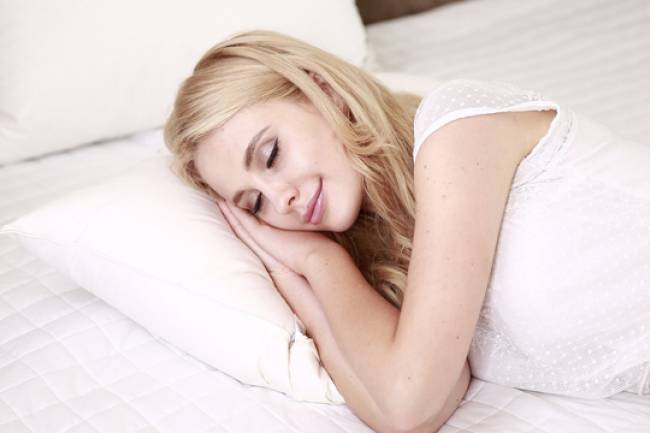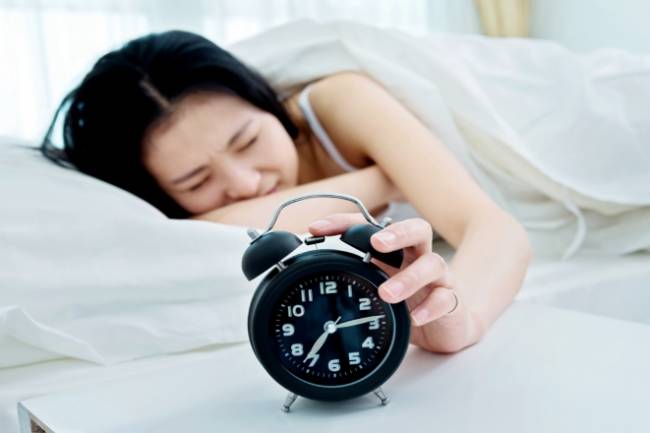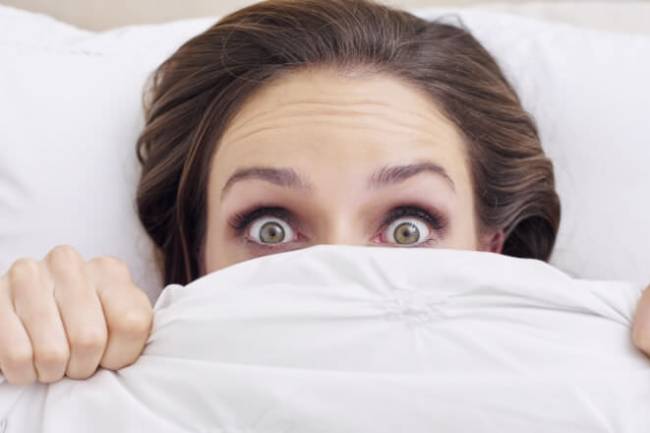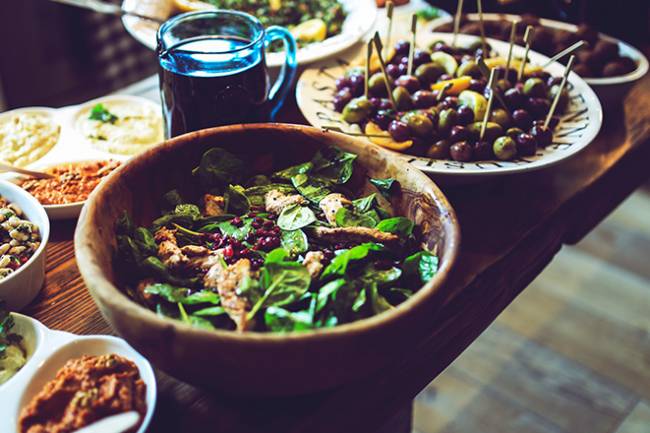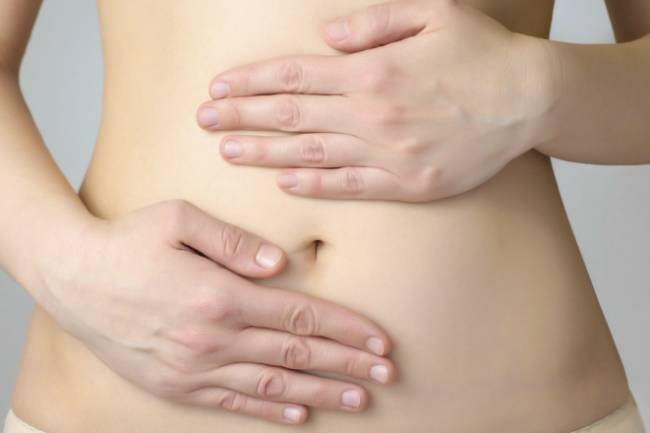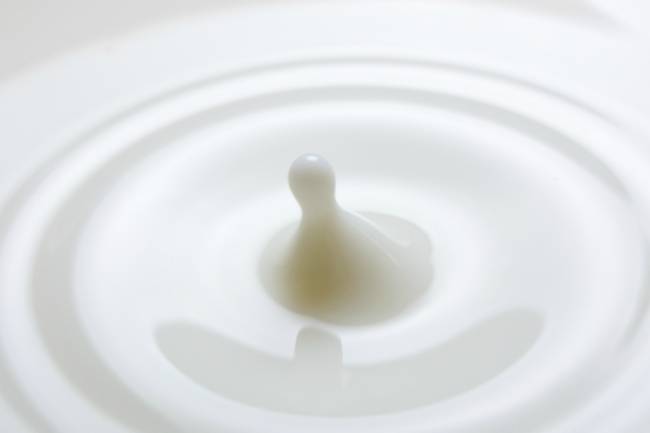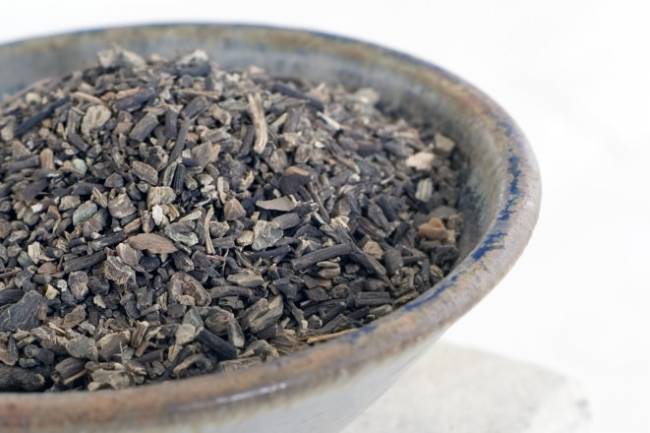Best and Worst Foods for Sleep
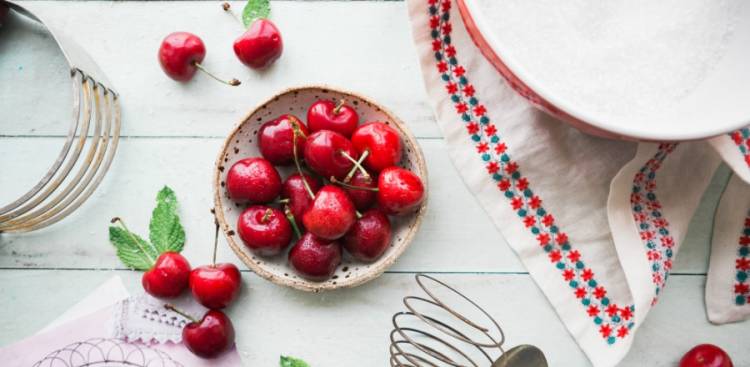
Getting a solid night's kip has many health benefits including improved cognitive thought, quicker reflexes, and improved mood. In contrast, poor, fragmented sleep contributes to weight gain, a weakened immune system, and an increased risk of heart disease and diabetes. If you're tired of lying awake at night then the best place to start is your diet.
Certain foods are more likely to promote sleep while others steal it, so what you eat can have serious consequences on the quality of your sleep. Ideally, you should avoid eating anything two to three hours before bed. However, it's important not to go to bed hungry so if you feel peckish be sure to grab a small snack. Just be sure to choose the right foods.
Worst Foods for Sleep
Fatty Meals
Fat stimulates the production of acid in the stomach and increases the risk of heartburn and indigestion. It takes a long time to digest which keeps the body awake, interferes with a sound night's sleep, and leads to excessive daytime sleepiness. Avoid eating greasy or fatty foods in the evening such as chips, fried foods, cheeseburgers, and ice cream. Unfortunately, when you lack sleep, you're more likely to crave fatty and sugary foods, which can create a vicious cycle.
Alcohol
Alcohol may not affect the speed at which you fall asleep but it will likely disrupt the quality of sleep. It metabolises quickly in the system so the 'sleepy' effects wear off during the middle of the night causing you to wake. Alcohol also prevents you from entering the deeper, much-needed REM stage of sleep, and it is a powerful muscle relaxant so can lead to snoring.
As a result, you end up tossing and turning which diminishes the quality of sleep and leaves you feeling less rested in the morning. Aim to drink no more than one alcoholic drink per day for women and two for men.
Caffeine
Caffeine stimulates the central nervous system and unsurprisingly should be avoided late in the evening. In fact, caffeine can stay active in your system for up to eight hours so you should avoid consuming it after 2pm. Be aware that caffeine is also found in some soft fizzy drinks, energy drinks, chocolate and certain prescription medications.
Chocolate
Dark chocolate contains several antioxidant compounds that can be beneficial for health however, this should be a daytime snack rather than an evening one. This is because chocolate is a sneaky source of caffeine and another stimulant called theobromine, which increases heart rate and sleeplessness.
Curry
Spicy foods and sauces such as curry, tabasco and mustard have thermogenic properties that elevate body temperate and increase the risk of heartburn, indigestion, and acid reflux. The normal circadian rhythm causes body temperature to drop slightly in preparation for sleep so spicy foods make it harder to fall into a restful sleep. Some people also find that spicy foods increase the frequency of nightmares – although this is not proven.
Raw Onions
Raw onions contain fructose which often forms a gas when broken down in the stomach, triggering bloating, abdominal pain, heartburn and acid reflux. The increased pressure in the stomach forces the sphincter to open and allows foods back into the oesophagus. Other gas-producing foods to watch out for are garlic, cabbage, peas, Brussels sprouts, broccoli, cauliflower, and beans. Many of these are also sources of insoluble fibre which moves slowly through the digestive system and contributes further to the production of gas.
Foods with High Water Content
Foods such as watermelon and celery have a high water content and act as natural diuretics. Eating these foods or drinking too much water before bedtime can result in a full bladder and frequent trips to the bathroom, disrupting sleep. Make sure you stay fully hydrated during the day and keep a water bottle by the bed but hold off drinking it until the morning.
Refined Carbs
Many of our favourite comfort foods are packed with refined carbohydrates, from white bread and pasta to cakes and biscuits. These carbs are quickly digested by the body, which causes a rapid rise and crash in blood sugar levels. Sugar also lurks in a wide range of processed foods, which further intensifies changes to blood sugar levels and interrupts sleep.
Best Foods for Sleep
Cherries
Cherries are one of the few foods that naturally contain melatonin, a hormone produced by the body to signal that it's time for bed. A study published in the European Journal of Nutrition found that drinking tart cherry juice before bed provided small improvements in the duration and quality of sleep in people suffering from chronic insomnia. So add some cherries to a bowl of low-fat yoghurt or combine with a banana and milk to make a delicious nighttime smoothie.
Milk
Drinking a warm glass of milk to induce sleep is not just an old wives tale, it's actually based on science. Milk contains an amino acid called tryptophan, which is a precursor to two neurotransmitters called serotonin and melatonin that help you to sleep. Milk is also rich in casein protein which is a slow digesting protein that delivers amino acids to muscles gradually over a sustained period of time. Be sure to use low-fat milk otherwise the high-fat content will take longer to digest and may keep you awake.
Cottage Cheese
Similar to milk, low-fat cottage cheese also contains the slow-digesting protein casein and the amino acid tryptophan. Casein provides your body with the amino acids it needs to repair muscles over several hours, while tryptophan induces the production of sleep-promoting neurotransmitters. Carb and protein duos work particularly well at inducing sleep as carbohydrates help the neurotransmitters reach the brain more easily. So spread half a cup of cottage cheese on whole wheat crackers for a delicious bedtime snack.
Nuts
Many nuts contain tryptophan, an amino acid that increases the production of sleep-promoting neurotransmitters. Almonds are a good option as they are also rich calcium and magnesium; calcium supports the conversion of tryptophan into melatonin to promote sleep, while magnesium calms the body and relaxes muscles.
Deficiencies in calcium and magnesium are thought to contribute to sleep problems. If your intake of calcium and magnesium is fairly low, top it up by snacking on a small handful of nuts or spreading some peanut butter on a slice of whole grain toast. While the diet is always the priority, some people find it useful to add an isolated calcium and magnesium supplement to their diet to improve sleep.
Complex Carbs
Complex carbs can help to improve sleep especially when combined with milk. Whole grain cereals such as shredded wheat and bran flakes are good options however, it's crucial to avoid sugar-laden cereals. In the evening, your metabolism starts to slow down so consuming sugar will more likely lead to fat storage and sleep disruptions. Other good complex carb options include quinoa and barley. When it comes to eating carbs in the evening, keep portions small – you want just enough to eliminate any feelings of hunger.
Bananas
Bananas are a rich source of magnesium and potassium which are effective muscle relaxants. Potassium can help to regulate sleep patterns and calm nerves, while magnesium has been shown to improve the length of time it takes to fall asleep, the quality of sleep, and the ease of waking up.
When you're feeling stressed, magnesium is one of the first minerals to be depleted from the body so stocking up on this essential mineral can help to relaxed overstressed muscles. Have a banana before bed; one large banana contains approximately 480 mg of potassium and 37mg of magnesium.
Valerian
Valerian teas, tinctures and supplements are derived from the root of a perennial plant called Valeriana officinalis. The roots contain volatile oils, including valerianic acids, sesquiterpenes and valepotriates, which are thought to improve the speed at which you fall asleep and the quality of sleep.
Valerian works by increasing the level of a brain chemical called gamma aminobutyric acid (GABA), which acts as a mild sedative by reducing brain activity and allowing you to fall asleep more easily. In one placebo-controlled study, 49% of participants taking valerian reported perfect sleep, while 89% said that their sleep improved significantly.
It is also worth noting that no side effects were reported during this trial. Certain prescription drugs such as Xanax and Valium also work by increasing the amount of GABA in the brain. However, these often have undesirable side effects such as grogginess, memory problems, and dizziness, to name just a few.
Valerian also helps to regulate nerve cells and calms anxiety, and there is early evidence to suggest that it may help to lower blood pressure. Valerian supplements should be taken one hour before bed for at least two weeks in order to feel the full benefits. Are there any foods that you find improve or worsen your sleep?

 Nicole
Nicole 